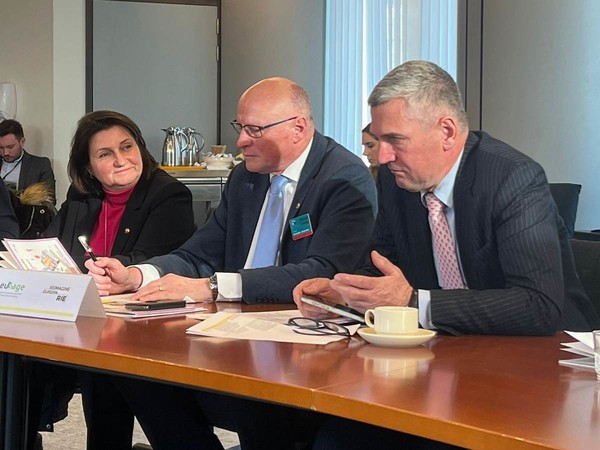Already on 24 January, the Committee on the Environment, Public Health and Food Safety will (ENVI) of the European Parliament will vote on a legislative motion on New Genomic Techniques (NGTs). In order to clarify some of the remaining issues as well as to remove unnecessary concerns, a meeting was therefore held last week hosted by MEPs Michaela Šojdrová, Juozas Olekas and Veronika Vrecionová. Ivo Frébort, Head of CATRIN-CRH and Vice President of the European Federation of Biotechnology, who has been dealing with this issue for a long time, provided a significant expert input.
About 100 participants of the meeting, which was co-organized by Re-Imagine Europa and EU-SAGE, have learned about the differences between NGTs, GMOs and conventional breeding from Frébort´s presentation.
“The meeting was very useful. It is crucial that truthful information about the potential of new genomic techniques for crop breeding and sustainable agriculture is available to people in all EU Member States and also the politicians who will now take decisions on the matter. Legislative change is very much needed as we cannot do without new genomic techniques in breeding crops with higher yields and greater resistance to climate change or pathogens. It is the only way to maintain the competitiveness of European agriculture, but also, for example, progress in science and research in the development of new biotechnologies,” said Frébort.
In addition to him, the expert panel also included speakers such as the Plant Breeding and Innovation Promotion Manager at Euroseeds, Petra Jorasch, who explained the importance of legal framework for the use of NGTs by small and medium-sized companies in breeding. Pekka Pesonen, General Secretary of COPA COGECA, noted that the European Union should strive for becoming a role model for innovation. According to the owner of RootConsult Dorrit Andersen, new and more resilient varieties are necessary to keep organic farmers competitive. President of the European Council of Young Farmers (CEJA) Peter Meedendorp stressed that young farmers welcome the proposal to amend the legislation.
The decision of the European Court of Justice of 25 July 2018 interprets the current legislation in a way, that all organisms prepared by modern genome editing techniques fall into the category GMOs and are therefore subject to very strict regulation. According to experts, this situation is contrary to current scientific knowledge and blocks the development of the bioeconomy or circular economy, which is based on the use of renewable biological resources and the conversion of these resources, including the waste they generate, into value-added products such as food, feed, biological products and energy. All this using environmentally friendly methods, without further burdening of the environment and disturbing biodiversity. The new proposal should update the obsolete legislation and allow the use of NGTs, as is already the case in a number of countries in the world.
